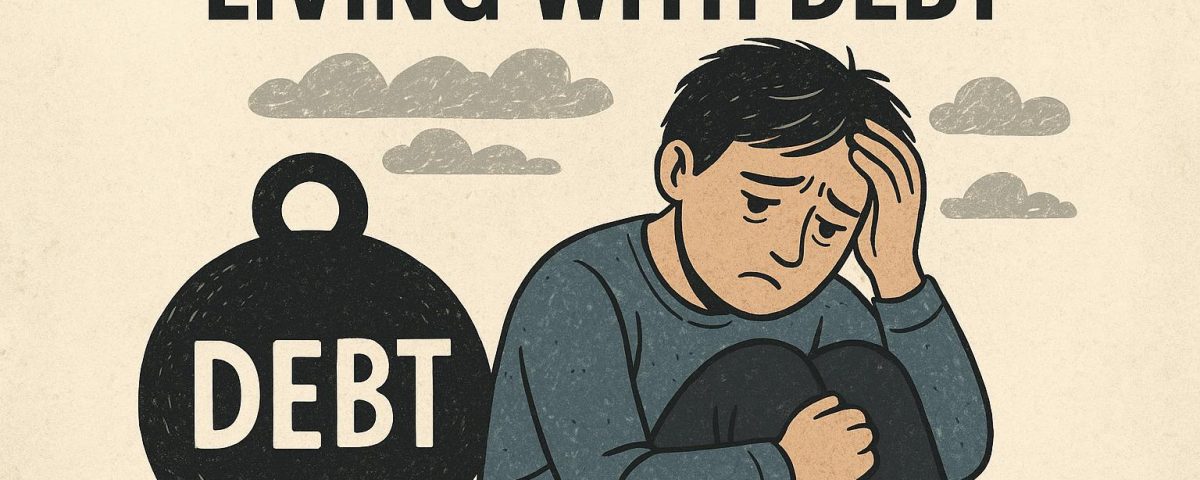The Psychological Impact of Living with Debt
The burden of debt is a prevalent experience for many individuals, making it an essential topic of interest when considering overall well-being and mental health. Debt is not only a financial issue but also a psychological one. The repercussions of carrying debt extend beyond the wallet and influence various aspects of an individual’s emotional and mental state. Understanding these effects is crucial for effective management and prevention strategies.
Stress and Anxiety
One of the most immediate psychological effects of living with debt is increased stress and anxiety. Individuals who are struggling to manage their financial obligations often experience a heightened sense of stress that permeates their daily lives. This constant stress can become chronic, leading to a variety of physical health symptoms. Common manifestations include headaches, insomnia, and fatigue, which can affect an individual’s overall quality of life. The ongoing worry about being able to meet debt repayments and the uncertainty about the future can exacerbate anxiety levels.
How the mind and body cope with sustained stress can significantly influence one’s capacity to deal with debt-related challenges. When the mind is in a state of apprehension, it often triggers a fight or flight response, which may hinder effective problem-solving and decision-making processes.
Depression
Debt has been consistently linked to depression in numerous studies. The sheer weight and overwhelming nature of financial challenges can lead to persistent feelings of hopelessness and despair. Individuals may find themselves trapped in a cycle of negative thoughts as they become consumed by debt-related worries. As a result, they might retreat from social interactions and activities, leading to isolation. This social withdrawal intensifies feelings of loneliness and can exacerbate depressive symptoms, creating a vicious cycle from which it can be difficult to escape.
Furthermore, the inability to see a clear path toward reducing or eliminating debt can compound depressive feelings, as it may seem that every financial decision made brings them further from their goals.
Shame and Guilt
Debt can bring about feelings of shame and guilt due to the social stigma surrounding financial instability. Many individuals feel embarrassed about their inability to meet financial commitments and may go to significant lengths to ensure that others, including close friends and family, remain unaware of their burdens. This need for secrecy can foster loneliness and exacerbate feelings of shame. Isolation often follows, making it even more difficult for individuals to reach out for support when it is needed most.
Struggling to discuss debt-related issues can hinder open communication and reinforce the sense of guilt, as individuals might blame themselves for their situations. However, recognizing debt as a common hurdle can help mitigate these feelings.
Impact on Relationships
Debt can have far-reaching effects on personal relationships, including those with family members and romantic partners. Financial stress is a leading cause of disagreements among couples and can lead to ongoing conflict or tension within a relationship. Disparate perspectives on financial management can exacerbate these stressors, creating a chasm between partners.
In familial relationships, debt can affect the dynamics of support systems. Family members may feel frustrated or helpless when trying to offer assistance, or they might exert pressure on the individual to manage their finances more effectively. This strain on relationships can lead to a diminished support network, leaving individuals feeling alienated.
Decision Making and Cognitive Function
The psychological strain associated with debt can significantly affect decision-making abilities and cognitive function. Individuals engulfed in financial stress may encounter difficulties focusing on routine tasks, resulting in decreased productivity both at work and in personal endeavors. This cognitive burden may also impair their ability to make sound financial decisions, further exacerbating their indebtedness.
While under stress, prioritizing long-term financial health over immediate fiscal relief can become challenging, leading to choices that might not align with their best interests. Employing effective time management and stress-relief techniques, however, can help mitigate some cognitive effects.
Constructive Coping Mechanisms
Awareness of the psychological impacts of debt is the foundation for developing constructive coping strategies. Seeking professional help, whether through counseling or financial guidance, can equip individuals with practical tools to effectively manage their financial obligations. Structured support from professionals can guide individuals in creating fiscally responsible plans while simultaneously addressing emotional well-being.
Practical steps, such as crafting a comprehensive budget plan, can provide a clear financial road map and reduce uncertainties that lead to stress. Engaging in stress-relieving pursuits, such as exercise, meditation, or hobbies, offers mental breaks and can decrease stress levels.
Further Resources
For individuals searching for more information on addressing debt-related issues, several external resources can prove invaluable. Financial counseling services and mental health support organizations offer comprehensive support, addressing both financial literacy and emotional health. Many online platforms provide insights and personalized strategies to effectively manage debt.
Consulting articles authored by financial experts or joining support groups can offer guidance on navigating complex financial situations. Additionally, engaging with online services tailored for these challenges can empower individuals to take proactive steps toward financial stability and improved mental health.

